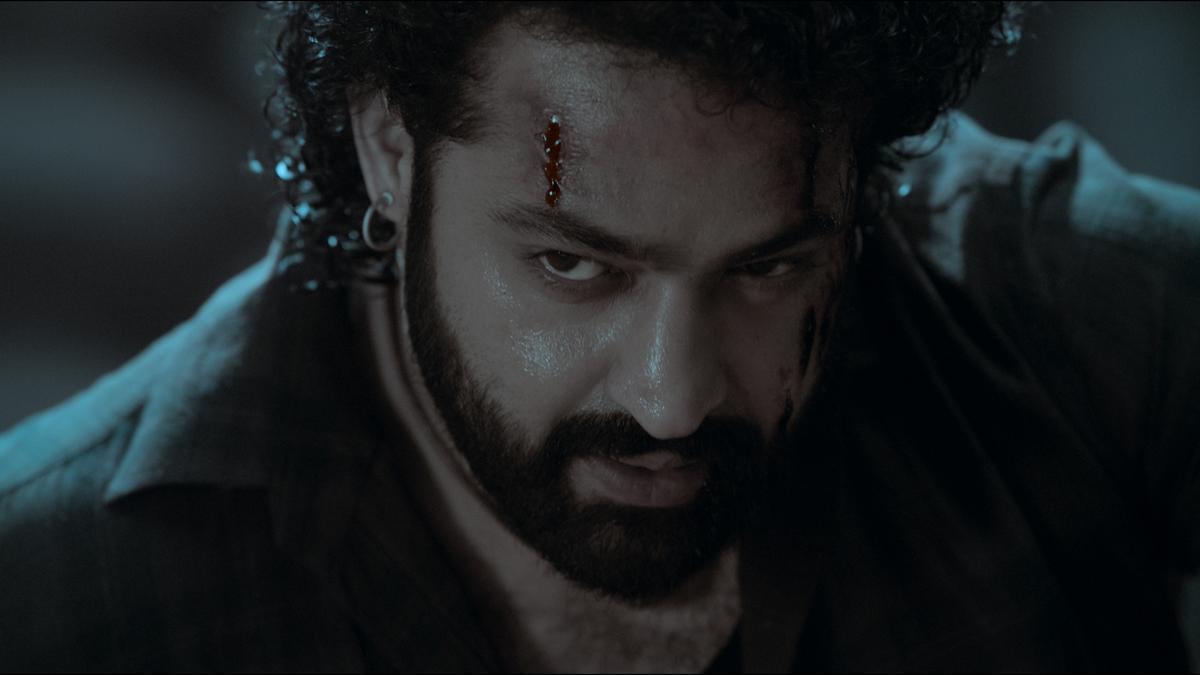
Nine years after SS Rajamouli’s groundbreaking “Baahubali: The Beginning” captivated audiences with its tantalizing cliffhanger about Kattappa’s betrayal, a wave of grand cinematic projects have emerged, often designed with sequels in mind. However, this trend presents a double-edged sword. While it allows filmmakers to dive deep into character development and intricate world-building, it also runs the risk of overstretching the plot. Some stories deliberately leave questions unanswered, banking on the audience’s eagerness for a sequel. Director Koratala Siva’s ambitious Telugu film “Devara,” featuring NTR, Saif Ali Khan, and Janhvi Kapoor, is the latest to join this trend. The film, dubbed and released in various languages, boasts some impressive set pieces amplified by Anirudh Ravichander’s dynamic score, but it eventually leaves audiences pondering the necessity of a sequel.
The term “Devara” refers to male gods venerated by coastal communities. NTR takes on the role of Devara, a mysterious figure reigning over a fictional coastal realm flanked by mountains. Set in 1996, against the backdrop of India’s preparation for the Cricket World Cup, the narrative traces back to the origin story of Devara, a maritime ruler. Koratala Siva wastes no time setting the stage: a police officer (played by Ajay) experiences a shocking underwater encounter, which prompts the village elder Singappa (Prakash Raj) to narrate Devara’s tale.
The audience is transported to a seafront region where four distinct clans coexist, and the lore of the “erra samudram” (red sea) unfolds. The film delves into themes of bravery and fear, diverging from the typical oppressed village narrative seeking a savior. Instead, it explores the extent of human actions when devoid of fear. Devara’s attempts to distinguish between the courage needed for survival and brute force result in philosophical rifts, particularly with Bhaira (Saif Ali Khan).
One of the film’s standout sequences takes place on a ship loaded with containers, showcasing the clandestine operations of Devara and Bhaira on the high seas. Devara is aware of his imperfections and downplays his significance compared to his freedom-fighting ancestors, advising his son Vara (NTR in a dual role) about his relative insignificance. These moral philosophies drive a deeper wedge among the clans.
The film does not thoroughly explore the origins of Devara and Bhaira’s comradeship, instead, it hints at their diverging moral codes over time. Secondary characters, such as those portrayed by Kalaiarasan and Tom Shine Chacko, exacerbate the division between Devara and Bhaira.
. A significant “Ayudha pooja” sequence emphasizes the importance of this festival and the traditional weapons of the clans, with the Telugu title symbolizing the assembly of varied armaments, resonating with the coastal communities’ culture.
Several scenes and narrative segments, including the container sequence and “Ayudha pooja” festivities, offer cumulative value rather than standing independently. Even smaller, seemingly trivial moments—like Vara’s offhand remark about hair dye or a father-son conversation on a stone ledge—have eventual payoffs, albeit some plot twists are quite predictable.
“Devara: Part 1” maintains a gripping pace for over an hour as it lays down the complexities of Devara’s world. However, in its latter half, the focus shifts to a formulaic romantic subplot between Vara and Thangam (Janhvi Kapoor) and the predictably brooding antics of Bhaira, causing the narrative punch to fizzle out. The ending mimics “Baahubali’s” cliffhanger style but falls short of delivering a similarly impactful punch, leaving it feeling incomplete.
Technically, the film shines due to the stellar work of the production crew. Rathnavelu’s cinematography masterfully captures the contrast between the inky black-blue night sea and the warm, flickering lights of coastal village life. Sabu Cyril’s production design lends the coastal locale a striking mix of allure and mystery. Anirudh Ravichander’s score stands out as the film’s heartbeat, dynamically shifting between rock and traditional beats, energizing the high-stakes action.
In this male-dominated action drama, some characters are regrettably sidelined, including Zarina Wahab’s portrayal of a mother hardened by loss and another character pinning hopes on education for a better future. While actors like Prakash Raj and Srikanth deliver commendable performances, others, such as Murali Sharma, Kalaiarasan, and Tom Shine Chacko, get overshadowed. Additionally, Bhaira’s character, despite being a central figure, is underdeveloped with Saif Ali Khan relegated to mere brooding. Janhvi Kapoor’s role is disappointingly cursory and lacks substance.
NTR’s portrayal of Devara can be seen as an evolution of his character Bheem from “RRR,” symbolizing the fluidity of water versus Rama’s fiery essence. As Devara, NTR adeptly conveys moral dilemmas with precision, while his performance as Vara attempts to uplift a poorly written character.
Ultimately, “Devara: Part 1” offers a mix of engaging and tedious moments. As a standalone film, it might have achieved greater narrative cohesion and impact. “Devara: Part 1” is now playing in theaters.
Published – September 27, 2024, 02:40 pm IST
Telangana / Hyderabad / Telugu cinema / The Hindu Cinema Plus / reviews












